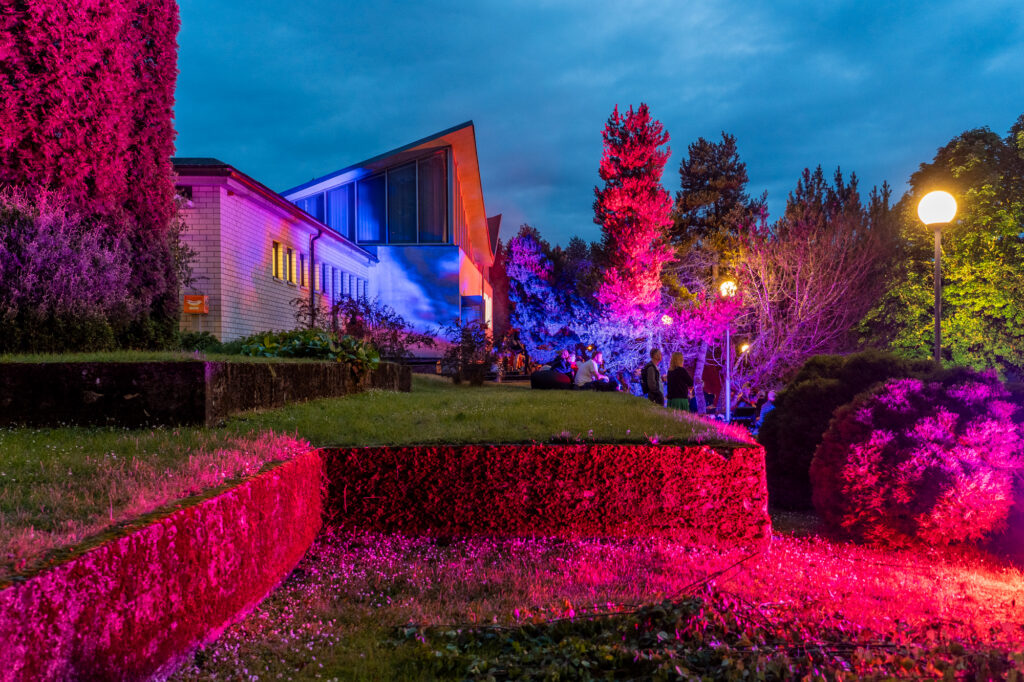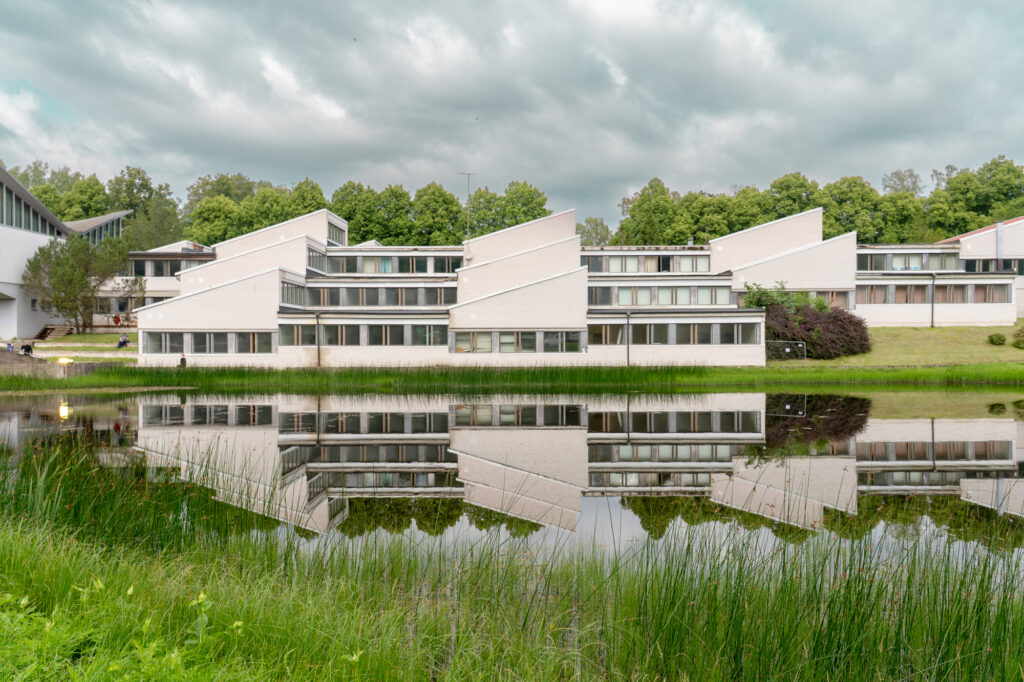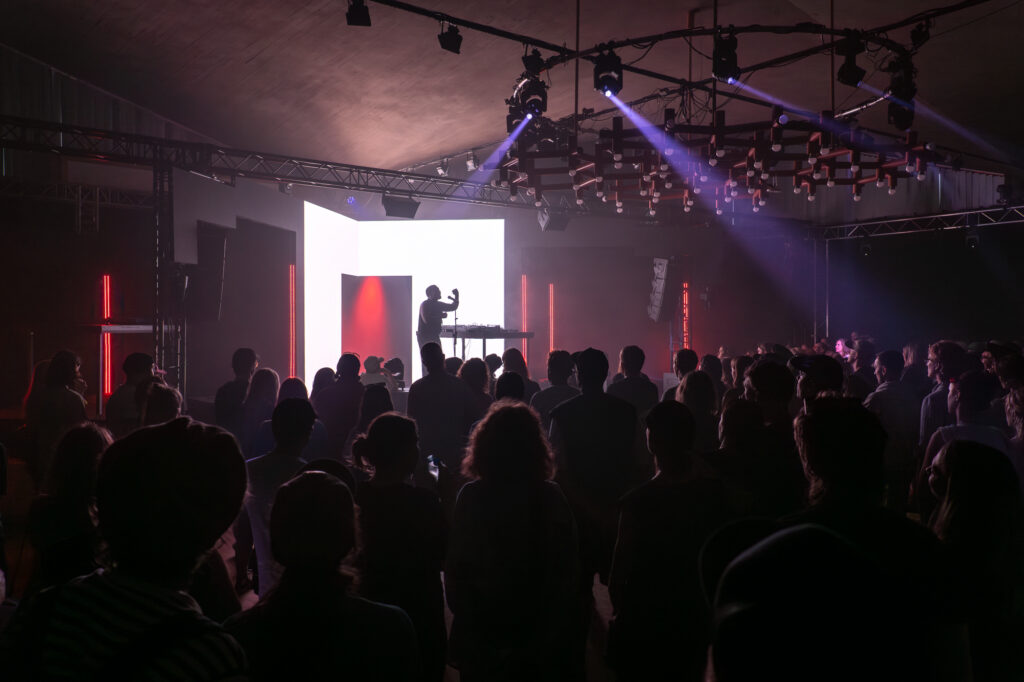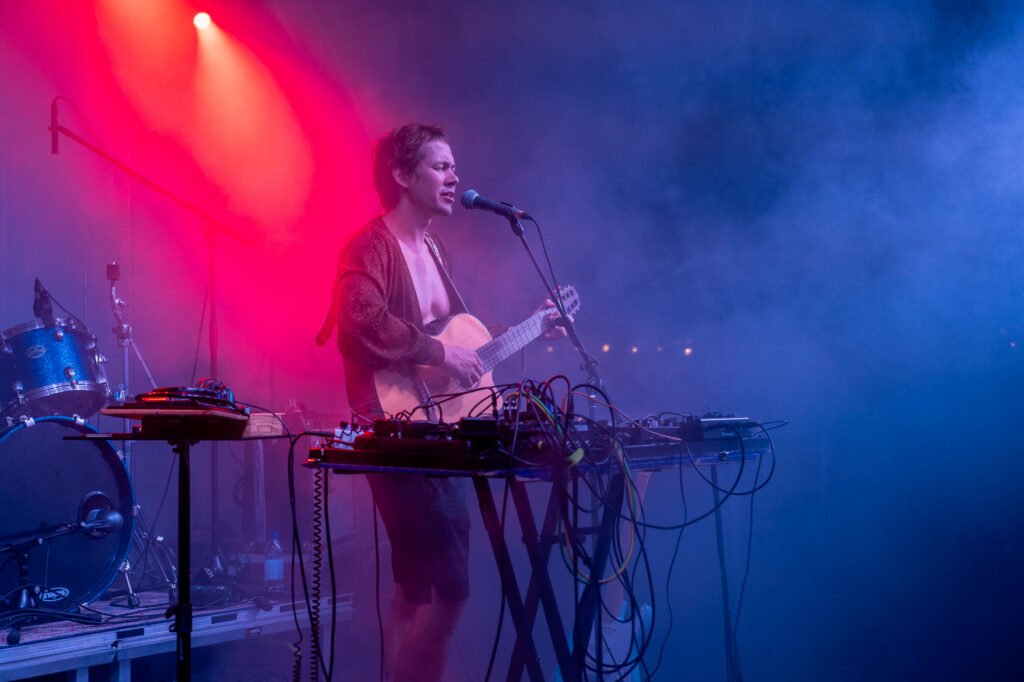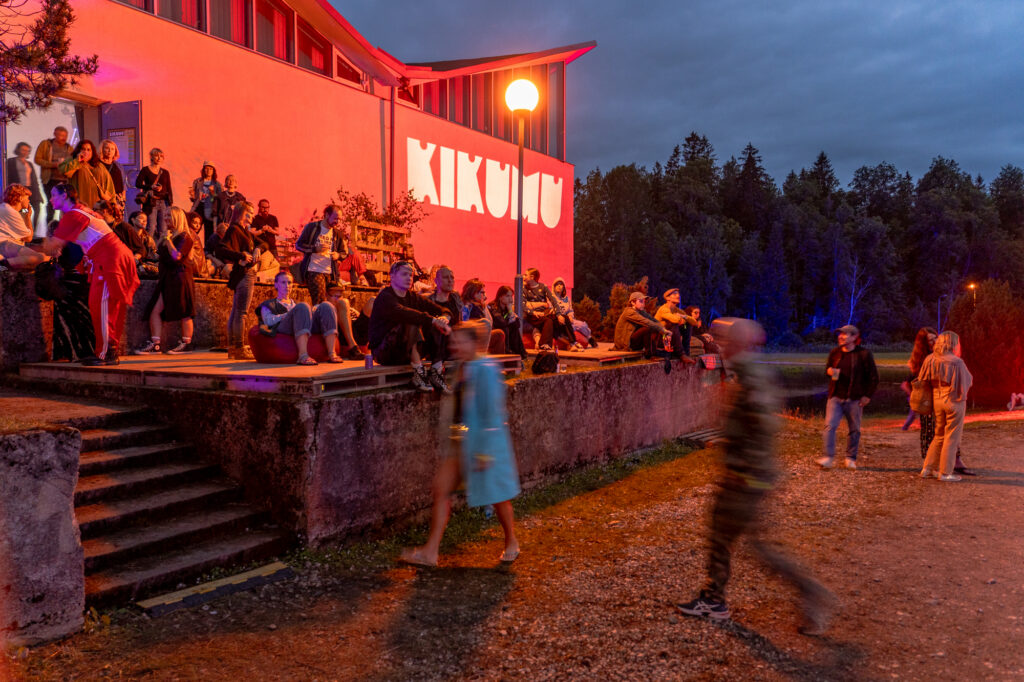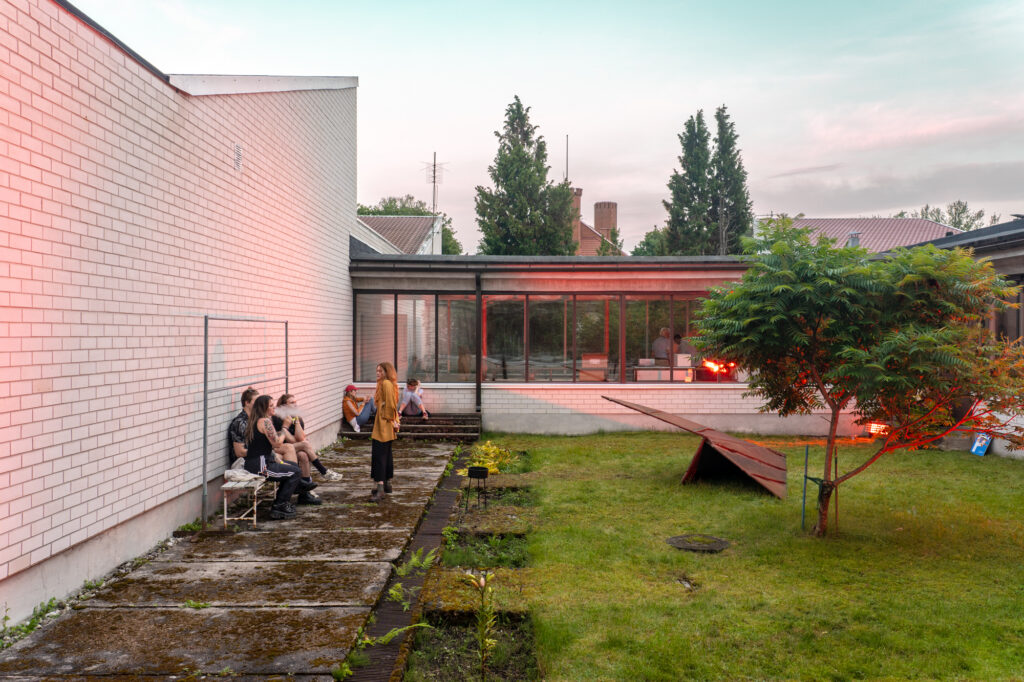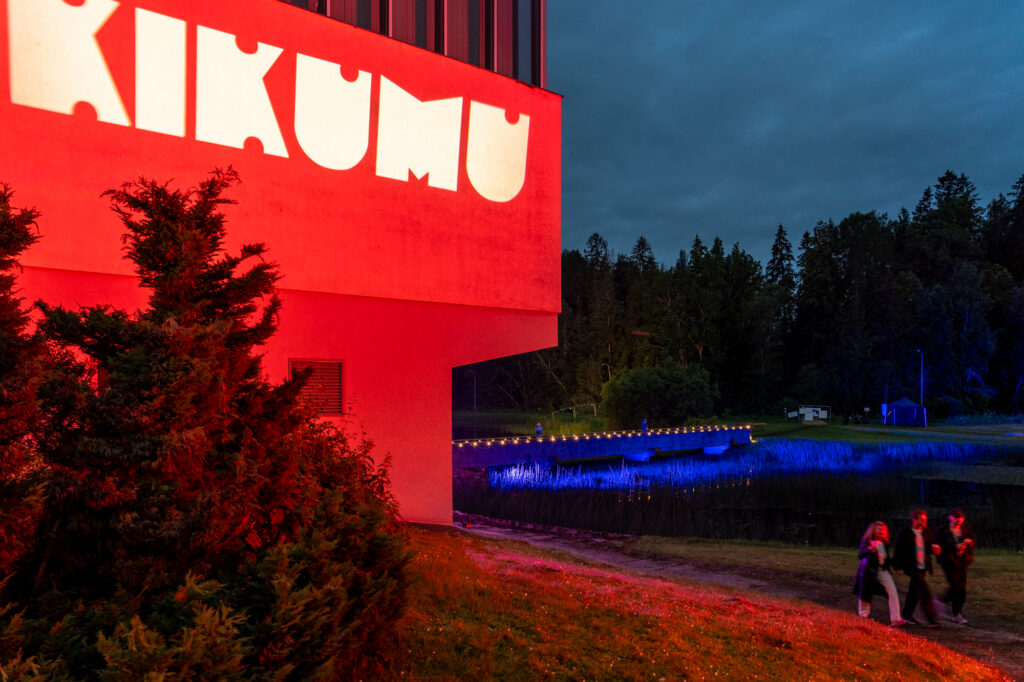This summer, a striking new addition to Estonia’s cultural calendar emerged: the KiKuMu Festival – a spirited celebration of music, cinema and the arts, set amid the quiet splendour of nature.
The air was warm and still, scented with fresh water and underpinned by the faint throb of distant bass. Light filtered through the trees, dancing on moss-covered ground and weathered timber. Somewhere, a melody drifted across the lake, mingling with birdsong and breeze. Time seemed to pause. KiKuMu did not declare itself with noise or spectacle – it arrived softly, like a breath held between two worlds.
Held for the first time at the Jäneda Training Centre from 11 to 13 July, KiKuMu welcomed a curious and spirited crowd to witness a fresh, forward-looking interpretation of ancestral heritage and artistic freedom. Across several sun-drenched days, the festival wove together ancient traditions and contemporary expression, crafting an experience both thoughtful and immersive. Curated by Indrek Kasela – a leading figure in Estonia’s cultural life and a patron of the arts – KiKuMu was shaped with a discerning hand, balancing clarity with openness, and offering a space where art could breathe and guests could simply be.
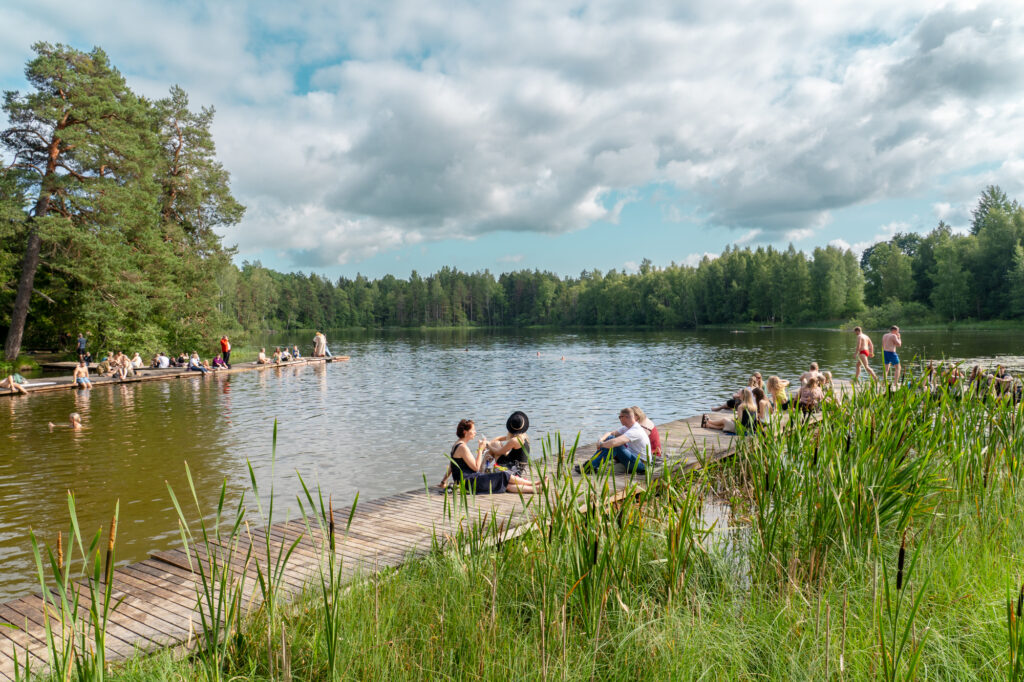
Set in a secluded landscape of forest and water, KiKuMu unfolded across four distinct stages – two indoors and two beneath the open sky, including one beside the lake. Festival-goers sunbathed, swam or simply floated, as live music drifted across the water like the score to a half-remembered dream.
Indoors, an art exhibition invited quiet reflection, while a small cinema offered films that echoed the festival’s grounding yet experimental spirit. Every element – from music and visual art to film – was carefully curated to encourage connection, presence and creative exploration.
KiKuMu’s musical programme ranged from folk and ritualistic to the avant-garde, with acoustic melodies echoing through forest paths and electronic textures pulsing beneath the stars. Showcasing both local and international voices, the line-up featured prominent Estonian artists – among them Vaiko Eplik, Maarja Nuut and Alonette – alongside global acts such as Gilles Peterson, Herbert & Momoko, Nazar and Afronaut. Nothing felt hurried or contrived; the atmosphere was unhurried, contemplative and richly sensory.
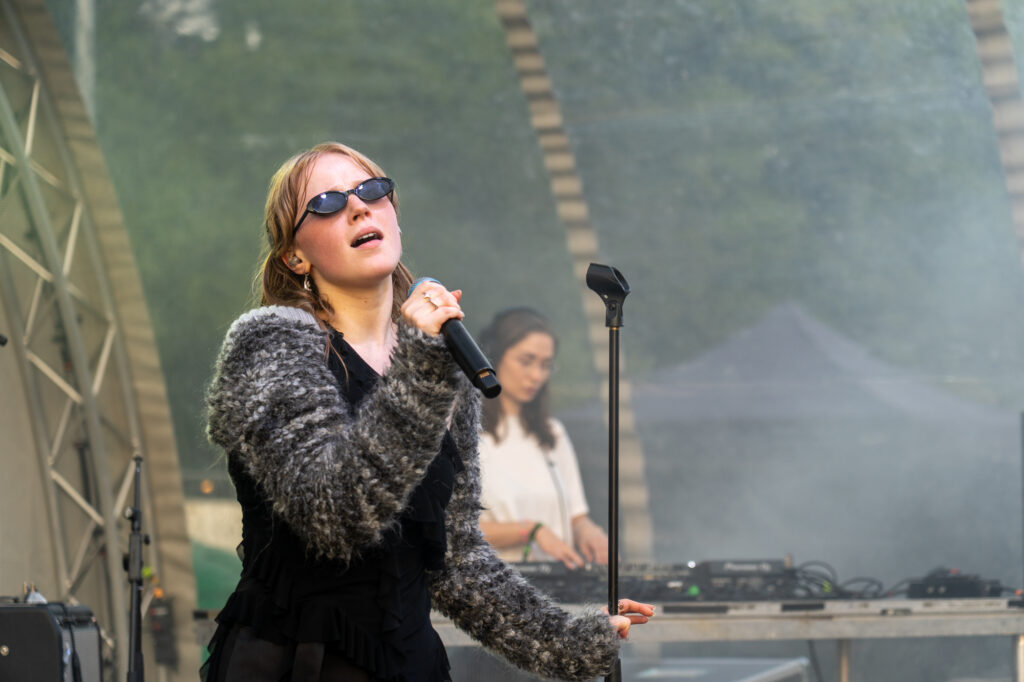
KiKuMu’s visual art programme was no less compelling, featuring works by the innovative Destudio collective alongside exhibitions by leading Estonian artists Kris Lemsalu and Edith Karlson. From experimental installations to evocative sculpture, their pieces opened a quiet dialogue between the natural landscape and contemporary artistic expression – inviting visitors into encounters that felt at once intimate and expansive.
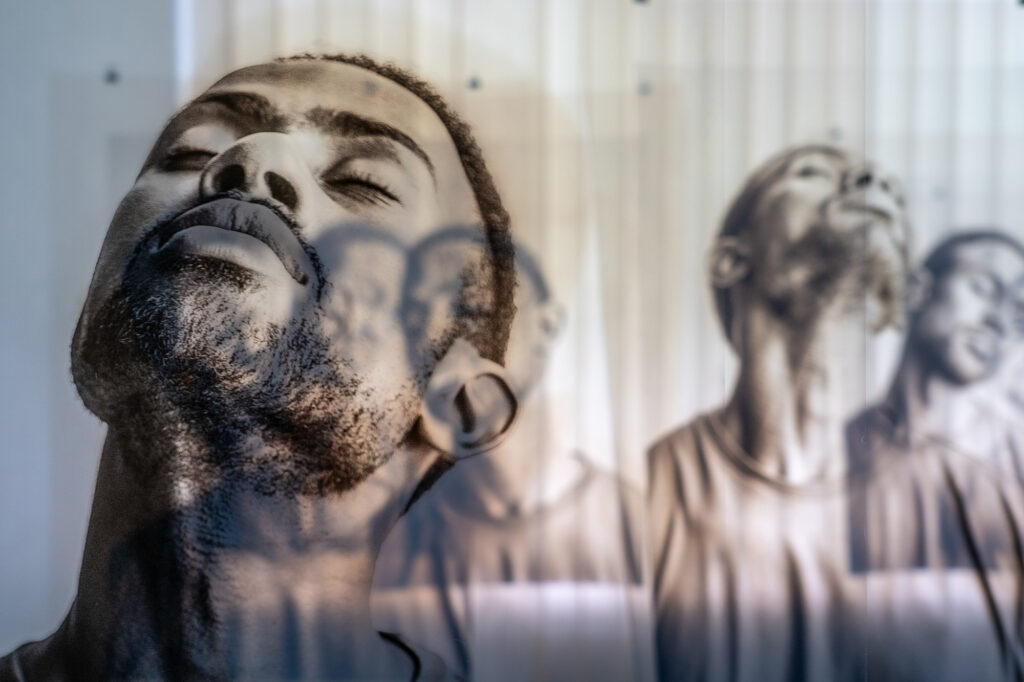
Modest in scale but rich in spirit, this inaugural edition of KiKuMu was more than a cultural event – it felt like a living ecosystem of art and experience, rooted in tradition yet reaching towards new possibilities. Below, a glimpse into its opening year: a gallery of moments captured by photographer Andrea Forlani, where Estonia’s creative spirit met the quiet beauty of nature.
